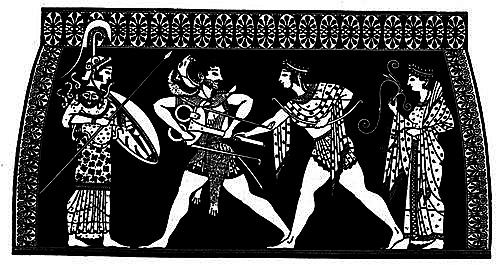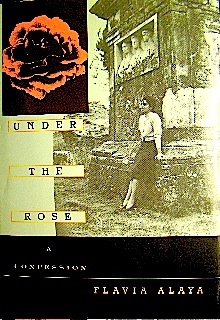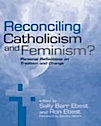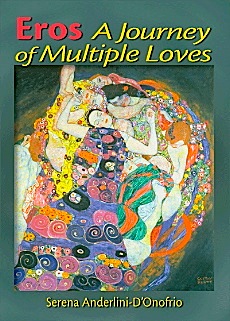
Brace yourselves, campers: today is going to be a long one. Think of it as a candle that’s going to stay lit for a while.
I’m not going to be waxing lengthy today merely because I’m returning my list of questions to put to your synopsis before you send it on its merry way, although that’s part of the reason. Once a year, I like to bring readers a sort of hit parade of the most commonly-made mistakes. Normally, I draw it out a bit more, arranging the problems by topic and devoting different days to different species.
But I’ve got to be honest: tomorrow is my birthday, and I’m not planning on spending it blogging. (Yes, I know that I have in previous years; my personal new year’s resolution is to try to reduce my 16-hour work day to something closer to 12. Since it’s hard to pry me away from the computer mid-scene, my first step toward chiseling away at my average hours is to take days off a bit more frequently.)
So let’s get right to business, shall we?
For those of you joining us mid-series, this checklist is intended less to help any aspiring writer who might happen to stumble upon it to create a jim-dandy synopsis from scratch, but to improve an already-existing draft. That, and to encourage you to regard synopsis-writing as an opportunity to encapsulate your writerly brilliance in capsule form, rather than treating it as a tedious bit of marketing trivia, yet another annoying hoop for the aspiring writer to jump through on the way to landing an agent.
Okay, so it’s still probably going to be tedious and annoying to produce. But addressing these questions will help it show off your talent more effectively. (Hint: you’re going to want to have a hard copy of your synopsis and a few highlighter pens in front of you. Go ahead and print it out; I’ll wait.)
All ready? Excellent. Before I suggest anything new, however, let’s take a gander at the points we’ve hit so far:
(1) Does my synopsis present actual scenes from the book in glowing detail, or does it merely summarize the plot?
(2) If the reader had no information about my book other than the synopsis, would the story or argument make sense? Or is more specific information necessary to render the synopsis able to stand alone?
(3) Does the synopsis make the book sound like a good story? Does it hang together? Does this presentation make me eager to read it?
(4) Does the synopsis tell the plot of the book AS a story, building suspense and then relieving it? Do the events appear to follow logically upon one another? Is it clear where the climax falls? Or does it merely list all of the events in the book in the order they appear?
(5) Have I mentioned too many characters in the synopsis? Does each that I mention come across as individually memorable, or are some mentioned so quickly that they might start to blur together in the reader’s mind?
Is everyone happy with those? Or, if not precisely happy, because revising a synopsis can be a heck of a lot of work, at least conversant with why I might have suggested such darned fool things?
I’m electing to take all of that silence out there in the ether as a resounding, “By jingo, yes!” from each and every one of you. (If by some strange fluke that’s not your personal reaction, by all means, chime in with a question in the comments.) Let’s move on.
(6) In a novel synopsis, is it clear who the protagonist is?
That question made some of you giggle, didn’t it? Actually, fiction synopses that imply the book is about every character, rather than following the growth of a single one. For a multiple-protagonist or multiple point of view novel, this kind of ambiguity is a bit hard to avoid, but for the vast majority of novels that focus on a particular individual, or at most two, it’s unnecessarily confusing to Millicent the agency screener if the synopsis doesn’t specify who the protagonist is.
And no, in answer to what some of my more literal-minded readers just thought very loudly indeed, you should NOT clarify this point by the inclusion of such English class-type sentences as The protagonist is Martha, and the antagonist is George, any more than you should come right out and say, the theme of this book is… Industry types tend to react to this type of academic-speak as unprofessional in a query, synopsis, or book proposal.
Why? Veteran synopsis-writers, take out your hymnals and sing along: because a good novel synopsis doesn’t talk ABOUT the book in the manner of an English department essay, but rather tells the story directly. Ideally, through the use of vivid imagery, interesting details, and presentation of a selected few important scenes.
I sense the writers who love to work with multiple protagonists squirming in their chairs. “But Anne,” these experimental souls cry, “my novel has five different protagonists! I certainly don’t want to puzzle Millicent, but it would be flatly misleading to pretend that my plot followed only one character. What should I do, just pick a couple randomly and let the rest be a surprise?”
Excellent question, lovers of many protagonists. Essentially, my suggestion for handling this particular dilemma in a synopsis would be the same as my advice for handling it in a pitch: tell the story of the book, not of a particular character.
And before anybody point it out: yes, I’m aware that this approach might cause a conscientious writer to run afoul of Point #6 for a paragraph or two, but honestly, the multiple-protagonist format doesn’t leave the humble synopsizer a whole lot of strategic wiggle room. Concentrate on making it sound like a terrific story.
And, above all, be certain that your synopsis doesn’t violate Point #7. Oh, hadn’t I brought up #7 yet?
(7) Does my protagonist/do my protagonists come across as an interesting, unusual person(s) involved in an interesting, unusual situation?
Again, this question may make some of you chortle, but you’d be surprised at how often novel synopses stress the averageness of their protagonists, the everydayness of their dilemmas, and seem to taunt Millicent with a lack of clear motivation or major plot twists. “How on earth,” she is wont to exclaim, “is this super-ordinary character/this very common situation going to maintain my interest for 350 pages, when s/he/it is already starting to bore me a little in this 5-page…zzzz.”
Trust me, you don’t want Millicent to have to take an extra a sip or two from one of her favorite too-hot lattes to make it through your synopsis. Contrary to popular opinion amongst enthusiasts of slice-of-life literature, if a story sounds mundane on the synopsis page, particularly at the query packet stage, most Millicents are not going to be eager to read the book. Everyman may be a popular protagonist, but super-ordinariness has been the death knell for many a novel synopsis.
Which I suspect may come as something of a surprise to many of you. Many aspiring writers deliberately go out of their respective ways in order to present their protagonists as completely ordinary, normal people leading lives so aggressively mainstream that George Gallop is inclined to sit up in his grave at the very mention of them and shout, “At last! People so average that we don’t need to perform broad-based polling anymore! We’ll just ask these folks!”
Or, to put it in a less melodramatic manner, these writers are fond of slice-of-life writing.
The problem is, book-length slice-of-life writing is usually pretty hard to sell — and nearly impossible to synopsize excitingly. Even the most character-driven of literary fiction needs to have a plot of some sort and a protagonist engaging enough (or appalling enough) to render the reader willing to follow him/her through the relevant high jinks, right?
Stop wailing, please, literary fiction writers: yours is a highly specialized market, and you shouldn’t be sending out synopses to agents who don’t represent your kind of book, anyway.
“Okay, Anne,” some of you literary fiction writers say, bravely wiping your eyes, “I realize that I’ve chosen to write in a book category that represents only about 3-4% of the fiction market; I know that I’m going to have to target my queries very carefully. But I have a wonderful slice-of-life novel here about Everyman and Everywoman’s universal struggles to deal with the everyday. How should I go about synopsizing it?”
In a way that may well strike you as running counter to your goal in writing such a book: by emphasizing what is different, fresh, and unusual about your protagonist and his/her dilemmas.
Before any of you get huffy at the prospect of soft-selling your aim of holding, as ’twere, the mirror up to nature, listen: in the current market, no agent, no matter how talented, is going to be able to sell a novel to an editor by saying, “Oh, this book could be about anybody”; no matter how beautiful the writing may be, the agent of your dreams is eventually going to have to tell an editor what your book is about.
In industry-speak, ordinary is more or less synonymous with dull. Sorry to have to be the one to break that to you, but it’s true. I’m guessing, though, that your protagonist actually isn’t dull.
So why isn’t s/he, precisely? How is s/he different from every other potential protagonist out there? What quirks render her or him fascinating on the page? What about her/his situation is unique?
Getting the picture? The synopsis needs to demonstrate not only that you can write, but that your book concept is fresh.
Actually, the questions above are dandy ones to ask about any fictional protagonist, not just those who grace the pages of literary fiction. What makes this character interesting and different from the protagonist of any other novel currently on the market — and how can you make those traits apparent on the synopsis page?
But what about a nonfiction story? Glad you asked.
(8) In a memoir synopsis, is it clear who the protagonist is? Does s/he come across as an interesting, unusual person involved in an interesting, unusual situation?
Sounds eerily familiar, doesn’t it?
And you would have thought that the identity of a memoir’s protagonist would be awfully hard to hide for long, wouldn’t you? If you walked a mile in Millicent’s shoes (sipping her latte, no doubt), or cozied up to her aunt Mehitabel the contest judge, you would know otherwise. To your sorrow, probably.
Just make it clear who the narrator is, okay?
Actually, memoir synopses scuttle themselves even more frequently by running afoul of that second criterion — the one about being an interesting character embroiled in an interesting situation — for the very simple reason that memoirists are prone to regard their stories as self-evidently interesting just because the events in them really happened.
As any memoir-representing agent could tell you, that’s not always the case. In fact, s/he is very likely to tell you that s/he sees very dull-sounding memoir synopses all the time.
So the synopsis-writing memoirist has an additional goal: not only to present her life story as important and intriguing, but also to render it pellucidly clear precisely how her life has differed from other people’s. A memoir synopsis that doesn’t convey this information within the first paragraph or so — ideally, by showing, rather than telling — tends not to maintain Millicent’s interest thereafter.
If you find it hard to figure out what to emphasize, try thinking of yourself as a fictional character. Why would a novel-reader want to follow you throughout a 500-page plotline?
While we’re on the subject, another good way to determine what might make dear self interesting to others…
(9) In either a novel or a memoir synopsis, is it clear what the protagonist wants and what obstacles are standing in the way of her getting it? Is it apparent what is at stake for the protagonist if she attains this goal — and if she doesn’t?
Or, to twist these questions in a slightly different direction, does the synopsis present the book’s central conflict well?
If ordinariness tends to raise Millicent’s uncannily sensitive am-I-about-to-be-bored? sensors, the prospect of conflict usually makes her ooh-this-is-interesting antennae twirl around in circles — but nothing flattens a reader’s perception of conflict like the impression that the outcome doesn’t matter very much to the characters.
Admittedly, not every good novel features life-or-death stakes. Nevertheless, your story is going to be more memorable to someone who reads synopses for a living if the conflict appears to be vitally important to the protagonist.
Trust me on this one. In Millicent’s mind, conflict = interesting. She probably works for an agent who goes around spouting the old industry truism, a good manuscript has conflict on every single page.
Yes, yes, I know: that’s debatable. But if Millicent rejects your query packet or submission at the synopsis-reading stage, that’s a debate you’re never going to get to have with the agent of your dreams.
(10) In a nonfiction synopsis that isn’t for a memoir, is it clear what the book is about? Does the subject matter come across as interesting, and does the synopsis convey why this topic might be important enough to the reader to make him/her long to read an entire book about it?
Again, this is a stakes issue: remember, however passionately you may feel about your chosen topic, Millicent, her cousin Maury the editorial assistant, and her Aunt Mehitabel will probably not already be conversant with it. It’s your job as the writer to get them jazzed about learning more.
Yes, even at the synopsis stage.
One of the more reliable methods of achieving this laudable goal is not only to present your subject matter as fascinating, but also to demonstrate precisely why your readers will find it so. In other words, why does your subject matter, well, matter?
Which leads me to…
(11) Does my synopsis make the book sound just like other books currently on the market, or does it come across as original?
When agents specialize in a particular kind of book (and virtually all of them do limit themselves to just a few types), you would obviously expect that they would receive submissions within their areas of specialty, right? So it’s reasonable to expect that an agency screener at an agency that represents a lot of mysteries would not be reading synopses of SF books, NF books, romances, and westerns, mixed in with only a few mysteries. Instead, that screener is probably reading 800 mystery synopses per week.
Translation: Millicent sees a whole lot of plot repetition in any given pay period.
This may seem self-evident, but it has practical ramifications that many aspiring writers do not pause to consider before blithely sending off their query or submission packets. That screener is inundated with plots in the genre…and your synopsis is the 658th she’s read that week…so what is likely to happen if your synopsis makes your book sound too much like the others?
Most likely, the application of Millicent’s favorite word: next!
“Wait just a cotton-picking second!” I hear those of who have attended conferences before protesting. “I’ve heard agents and editors jabbering endlessly about how much they want to find books that are like this or that bestseller. They say they WANT books that are like others! So wouldn’t an original book stand LESS of a chance with these people?”
Yes, you are quite right, anonymous questioners: any number of agents and editors will tell you that they want writers to replicate what is on the bestseller lists right now. Actually, though, this isn’t typically what they mean in practical terms.
Since it would be completely impossible for a book acquired today to hit the shelves tomorrow, and extremely rare for it to come out in under a year — and that’s a year after an editor buys it, not a year from when an agent picks is up — what is selling right now is not what agents are seeking, precisely.
They are looking for what will be selling well, say, a couple of years hence. Which, common sense tells us, no one without highly-specialized psychic abilities can possibly predict with absolute accuracy.
So when agents and editors tell writers at a conference that they are looking for books that resemble the current bestseller list, they really mean that they want you to have anticipated two years ago what would be selling well now, have tracked them down then, and convinced them (somehow) that your book was representative of a trend to come, and thus had your book on the market right now, making them money hand over fist.
I’ll leave you to figure out by yourselves the statistical probability of that scenario’s ever happening in our collective lifetimes. Just make your book sound original, okay?
Some of you are pouting at that last bit, aren’t you? “But Anne,” some of you inveterate bestseller-readers point out, “I’ve done my homework; I’ve gone to conferences. The same authors sell well year after year, so I’ve written a manuscript that’s more or less in the style of (fill in bestseller here), except mine is far, far better. Why wouldn’t that excite any market-minded agent?”
Your question made me smile, oh pouters: there was a good joke on the subject making the rounds of agents a couple of years back.
A writer of literary fiction reads THE DA VINCI CODE, doesn’t like it, and calls his agent in a huff. “It’s not very well written,” he complains. “Why, I could write a book that bad in a week.”
“Could you really?” The agent starts to pant with enthusiasm. “How soon could you get the manuscript to me?”
Given how fast publishing fads fade, I will make a prediction: the same agent who was yammering at conference crowds last month about producing book X will be equally insistent next months that writers should write nothing but book Y. You simply cannot keep up with people who are purely reactive.
Frankly, I don’t think it’s worth your time or energy to get mixed up in someone else’s success fantasy. The fact is, carbon copies of successful books tend not to have legs; the reading public has a great eye for originality.
What DOES sell quite well, and is a kind of description quite meaningful to agents, is the premise or elements of a popular work with original twists added. So at this point in literary history, you’re better off trying to pitch LITTLE WOMEN MEETS GODZILLA than LITTLE WOMEN itself, really.
Don’t believe me? Have you checked out the sales figures on PRIDE & PREJUDICE & ZOMBIES?
The fact is, a too-close imitation of a bestseller is always going to strike Millicent as rather derivative of the bestseller — and doubly so if the bestseller in question happens to be a classic. Which is why, I suspect, that much-vaunted recent experiment where someone cold-submitted (i.e., without querying first, and without going through an agency) a slightly modified version of PRIDE AND PREJUDICE to an array of major publishers, only to have it summarily rejected by all.
At the time of the experiment, there was much tut-tutting discussion of how this outcome was evidence that editors wouldn’t know great literature if it bit them, but my first thought was, how little would you have to know about the publishing industry to think that an unsolicited, unagented novel would NOT be rejected unread by the big publishers? Mightn’t this have actually been a test not of how literature fares, but what happens to submitters who do not follow the rules?
My second thought, though, was this: at this point in publishing history, wouldn’t even an excellent rehashing of PRIDE AND PREJUDICE seem old hat? How could the submitter possibly have presented it in a manner that seemed fresh?
After all, it’s been done, and done brilliantly — and re-done in many forms, up to and including PRIDE & PREJUDICE & ZOMBIES and BRIDGET JONES’ DIARY. I can easily imagine pretty much any English-speaking editor’s taking one look, roll her eyes, and say, “Oh, God, here’s somebody ripping off Jane Austen again.”
My point, in case you were starting to wonder, is that agents and editors tend to be pretty well-read people: a plot or argument needs to be pretty original in order to strike them as fresh. The synopsis is the ideal place to demonstrate how your book differs from the rest.
And what’s the easiest, most direct way of doing that, for either fiction or nonfiction? By including surprising and unique details, told in creative language.
Even if your tale is a twist on a well-known classic (which can certainly work: THE COLOR PURPLE is a great retelling of the Ugly Duckling, right?), you are usually better off emphasizing in the synopsis how your book deviates from the classic than showing the similarities. Here again, vivid details are your friends.
One big caveat, however: please bear in mind that Millicent (like Maury and Mehitabel) tends to make a strong distinction between original and weird, as well as between plausible and implausible. Which brings me to…
(12) If I’m marketing fiction, does my synopsis make the story I’m telling seem plausible?
I could sense some of the novelists out there rolling their eyes before I even finished typing that one. “Um, Anne?” a few of you scoffed. “What part of FICTION don’t you understand? By definition, fiction writers make things up.”
Quite true, oh scoffers, but for even the most outrageously fantastic storyline to hang together, it must be plausible — at least in the sense that the characters would actually do and say the things they do and say on the page. If the internal logic of the premise doesn’t seem to be applied consistently in the synopsis (or in the manuscript, for that matter), Millicent is likely to pass.
Yes, even if the synopsis in question happens to be for a novel where obeying the law of gravity is merely optional and every other character has a couple of extra arms, toes, or senses. If a plot doesn’t seem to be following its own rules, it’s hard for the reader to remain involved in the story.
Why? Well, when a reader is swept up in a drama (or a comedy, for that matter), she engages in behavior that Aristotle liked to call the willing suspension of disbelief. Basically, she enters into a tacit understanding with the author: the rules that govern the world of the book, no matter how wacky or impractical they may be for the reader’s world, are precisely what the narrative says they are. Most of the time, as long as the narrative abides by them, the reader will be willing to go along for the ride.
Note that as long as clause. If a narrative violates its own rules, the agreement is violated: in thinking, “Wait, that doesn’t make sense,” the reader is knocked out of the story.
(Ditto, incidentally, when a first-person or tight third-person narrative suddenly switches, however momentarily, from the protagonist’s perspective to something that the protagonist could not possibly perceive. That’s usually an automatic-rejection offense for Millicent. But perspective-surfing is a subject for another blog post when I finally polish off this run of series on practicalities and get back to craft issues.)
Millicents are notoriously sensitive to being pulled out of a story by a plausibility problem. So are their bosses, the agents who employ them to reject as high a percentage of submissions as possible, and the editors to whom those bosses sell books.
I just felt some of you go pale. “How sensitive?” those of you who have submitted recently enough that you haven’t yet heard back squeak in unison. “Is it one of those automatic-rejection reasons you mentioned up there in the parentheses when you thought nobody was looking? I’d really have to do it a lot to annoy her, right?”
Got the smelling salts handy? In a manuscript submission, a single instance is often an automatic rejection offense.
Yes, even in a synopsis.
Why? Well, any gaffe that breaks the reader’s suspension of disbelief is, ultimately, a storytelling problem. Thus, Millicent may be excused for thinking as soon as she casts her hyper-critical eye over one, “Oh, this writer isn’t a very consistent storyteller.”
Okay, so this may be an unfairly broad conclusion to draw from a line or two in a synopsis — especially when, as we’ve discussed earlier in this series, many, many talented aspiring writers simply throw together their synopses at the last possible minute prior to sealing the submission or contest entry envelope. But lest we forget, Millicents are in the BUSINESS of making snap judgments; they couldn’t get through the hundreds of queries and submissions they see every week otherwise.
Aren’t you glad you had those smelling salts handy?
If you’re not absolutely certain that your synopsis is internally consistent enough to pass the plausibility test, have someone else (NOT someone who has read the manuscript, ideally) read it and tell the story back to you. Better yet, have someone else read it, tell the story to a third party, and have the third party try to reproduce it for you AND a fourth person.
Why such a mob? You may not catch the “Hey, wait a minute!” moments, but chances are that #4, at least, will. Listen carefully to any follow-up questions your experimental victims may have; address them in the synopsis, so that Millicent will not be moved to ask them of the ambient air at the screening stage.
Pay particular attention to any spot in the synopsis that provokes an unexpected giggle. Few narrative gaffes provoke bad laughter — the giggles that spring from readers or audience at a spot where the writer did not intend for them to laugh — as readily as deviations from the internal logic of a story.
This isn’t a bad fix-it strategy for nonfiction, either, especially for memoir. Which brings me to…
(13) If my book is nonfiction, does it come across as both plausible and as though I’m a credible source?
Too often, NF writers in general and memoirists in particular assume that just because they are recounting true events, their narratives will be inherently plausible. Unfortunately, it’s just not true.
Just as a novel’s plausibility depends upon the narrative’s consistently following its story’s internal logic, a nonfiction account or argument needs to hang together, with no missing steps. In a manuscript, plausibility problems tend to arise from incomplete set-ups and telling stories out of chronological order.
Where nonfiction synopses usually fall down on the job is by providing insufficient background — prompting questions like, “Why did this happen?” Again, you will be much, much better off if you can solicit such questions from someone other than Millicent, so you may address them before she reads your synopsis.
I think I’m going to leave you with that lovely conceptual cliffhanger and sign off for a couple of days. Those birthday candles aren’t going to blow themselves out. Many happy returns of tomorrow for all of us, and keep up the good work!






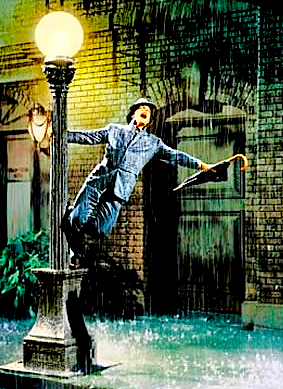
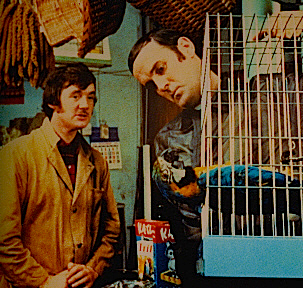



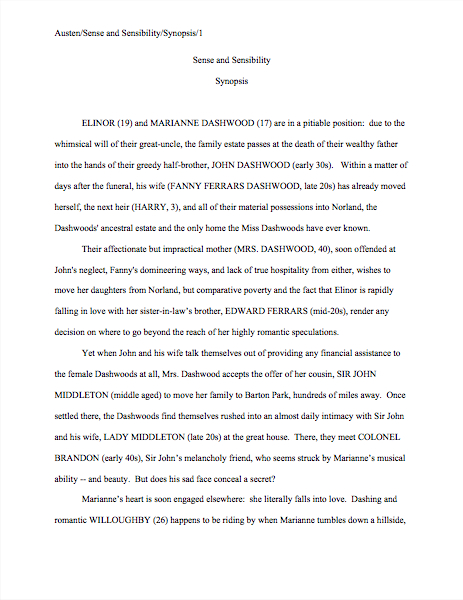
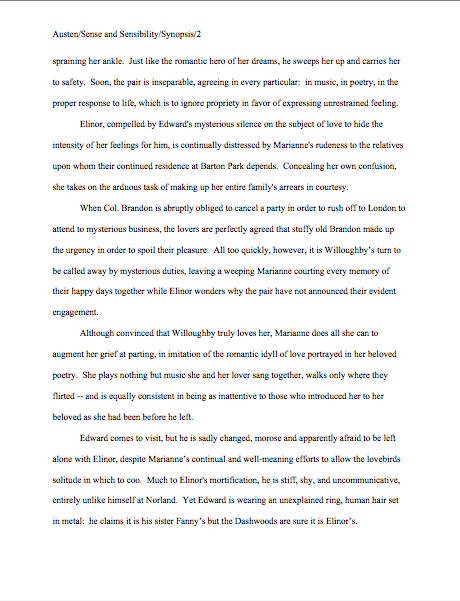
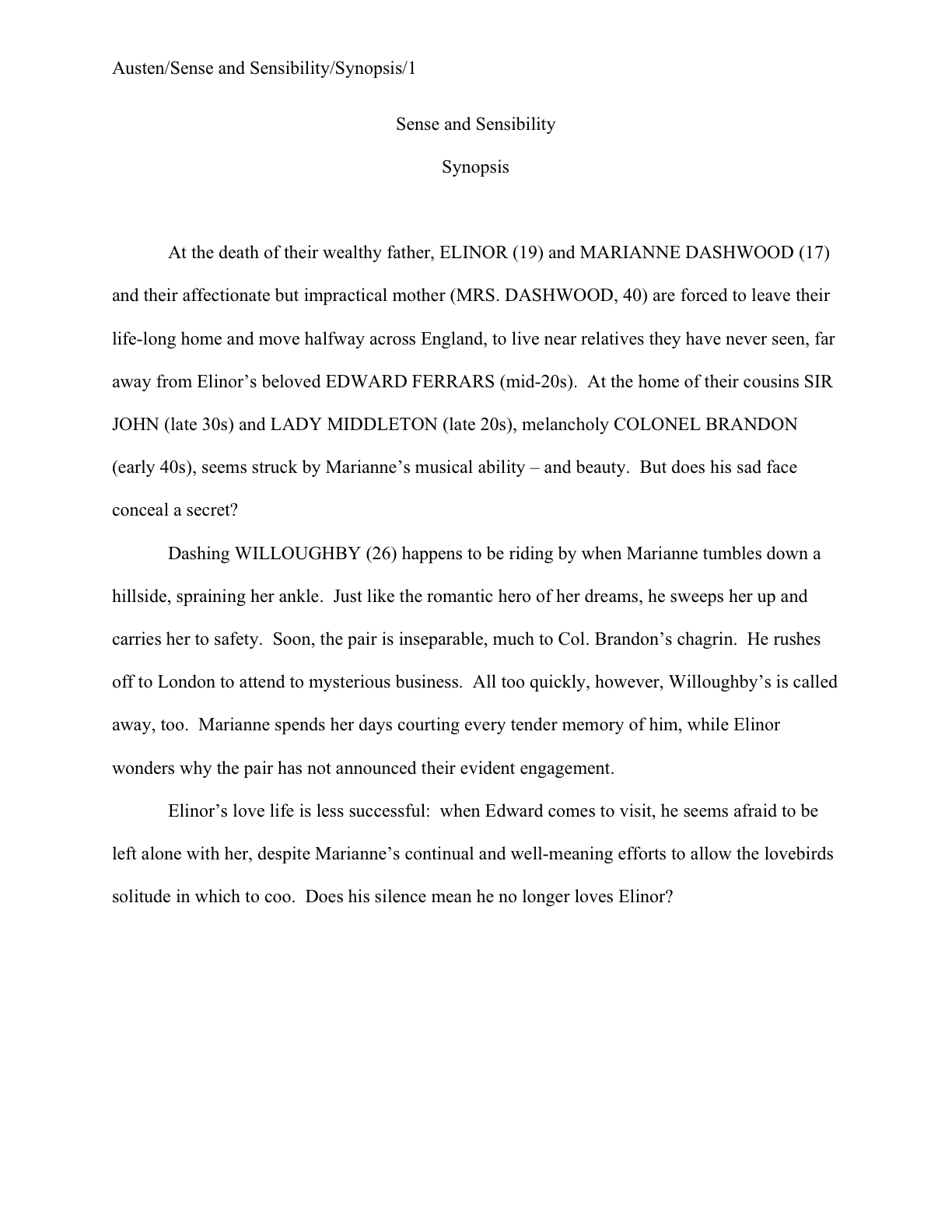

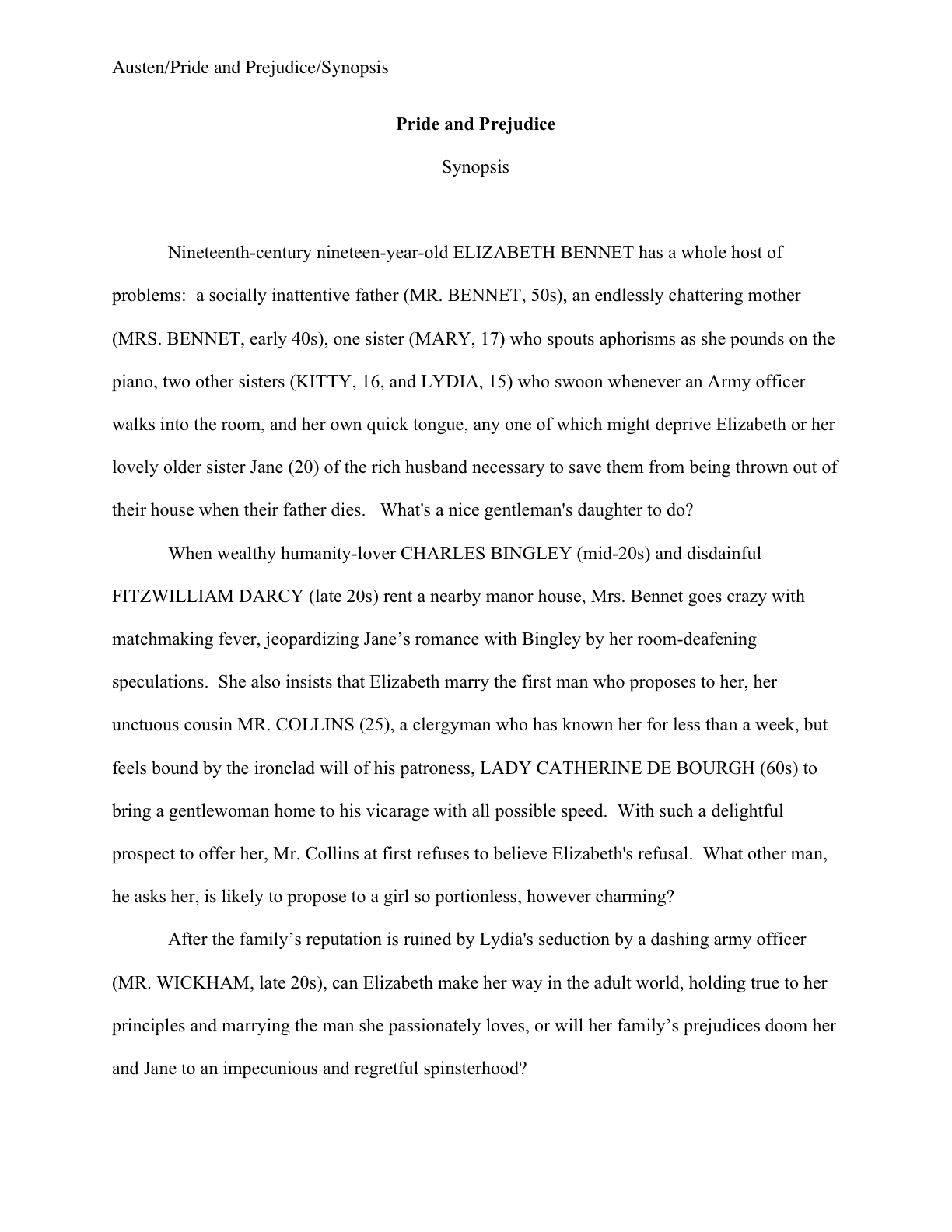
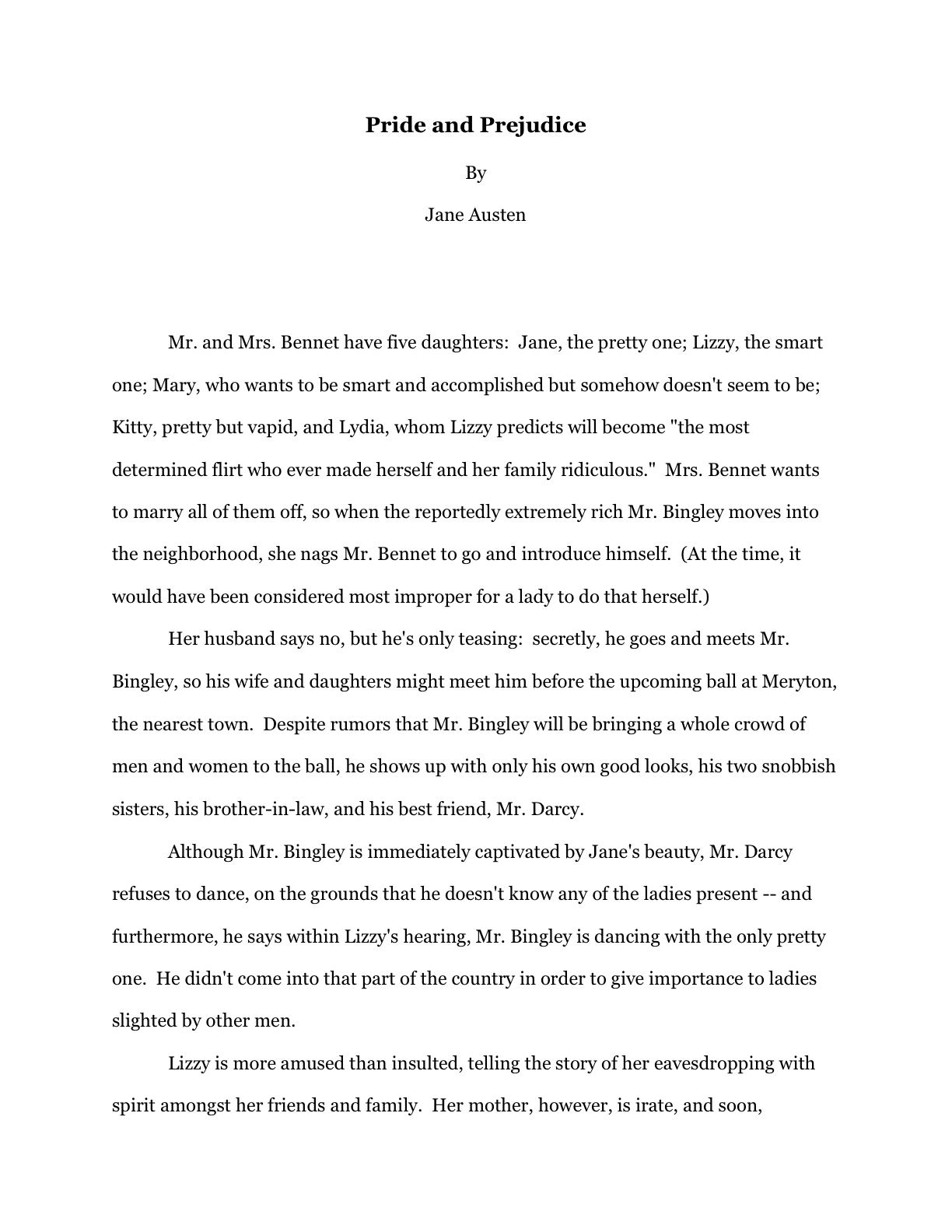
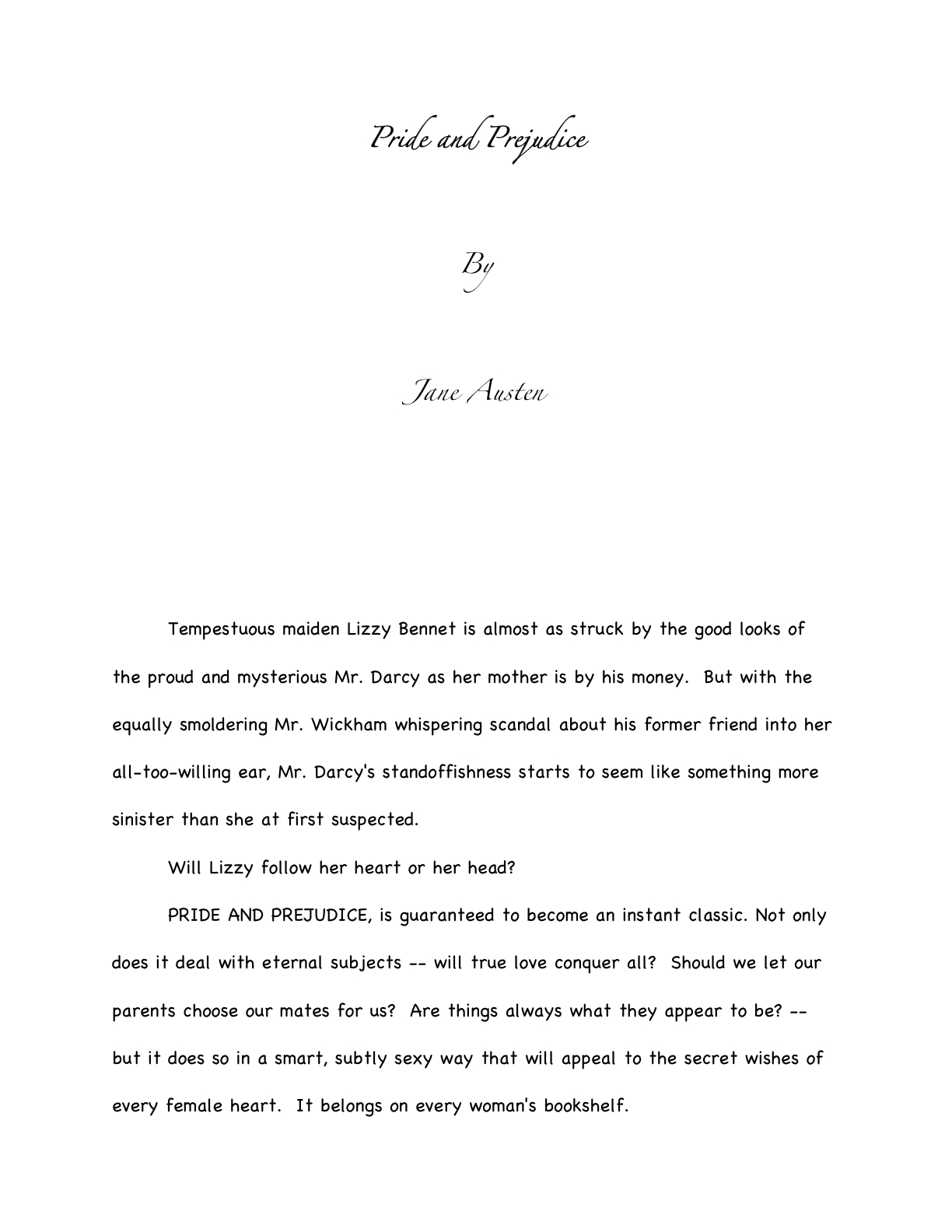



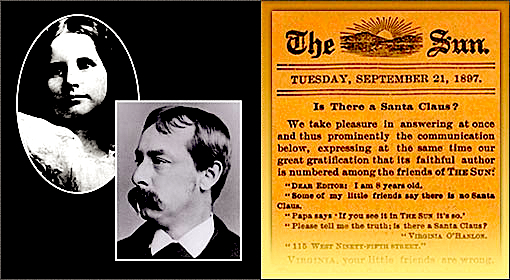
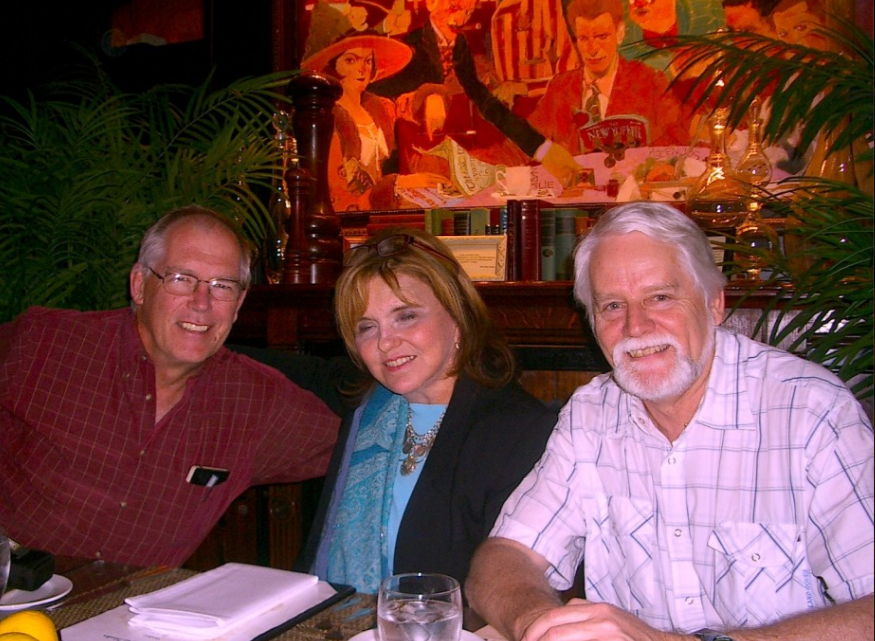
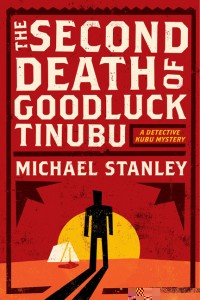
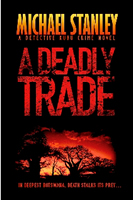 How can a man die twice?
How can a man die twice?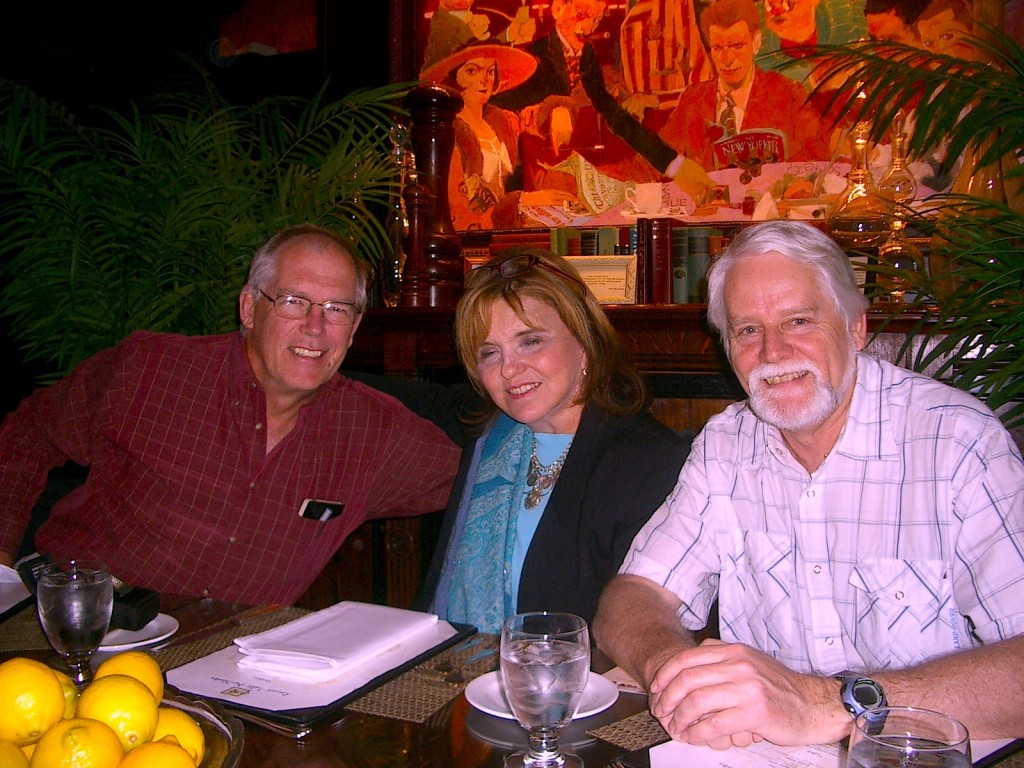
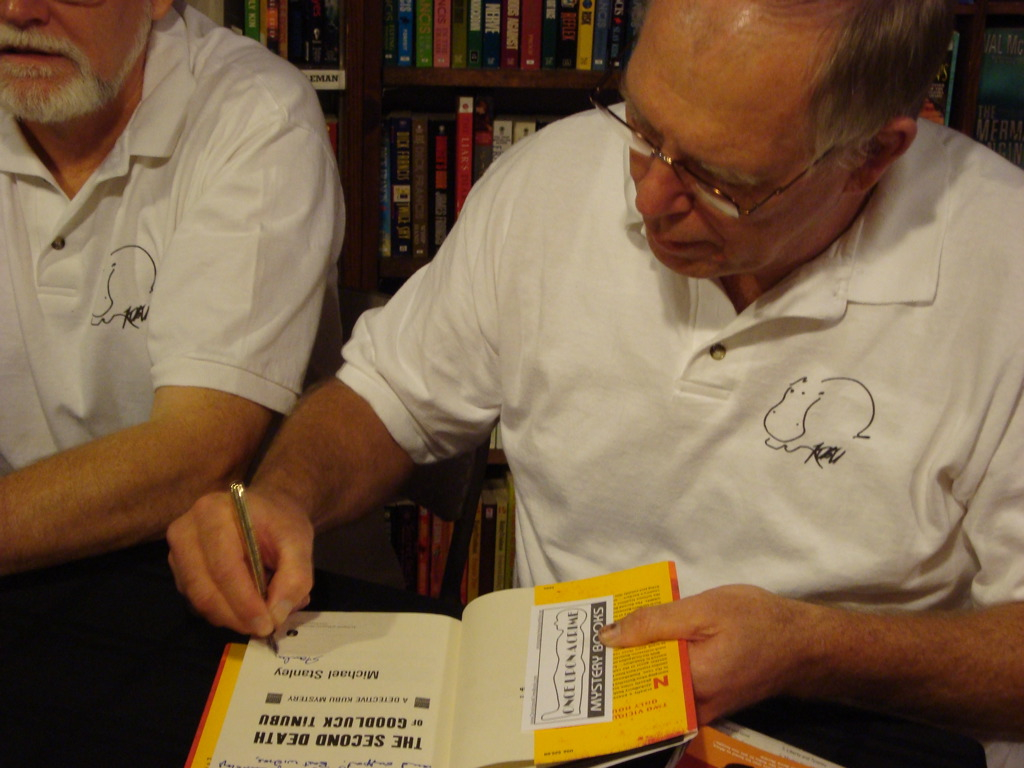
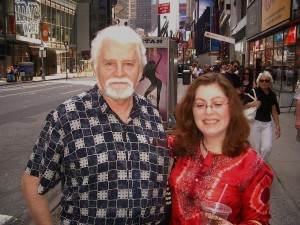
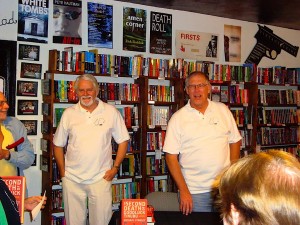
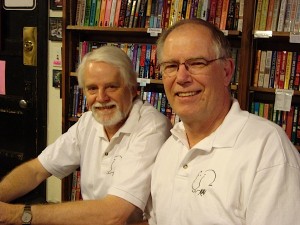
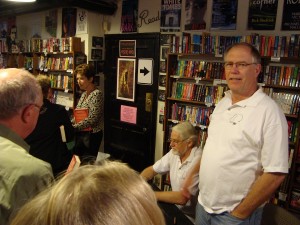
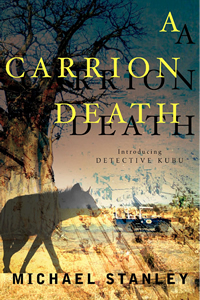
 Michael Stanley is the writing team of Michael Sears and Stanley Trollip.
Michael Stanley is the writing team of Michael Sears and Stanley Trollip. 